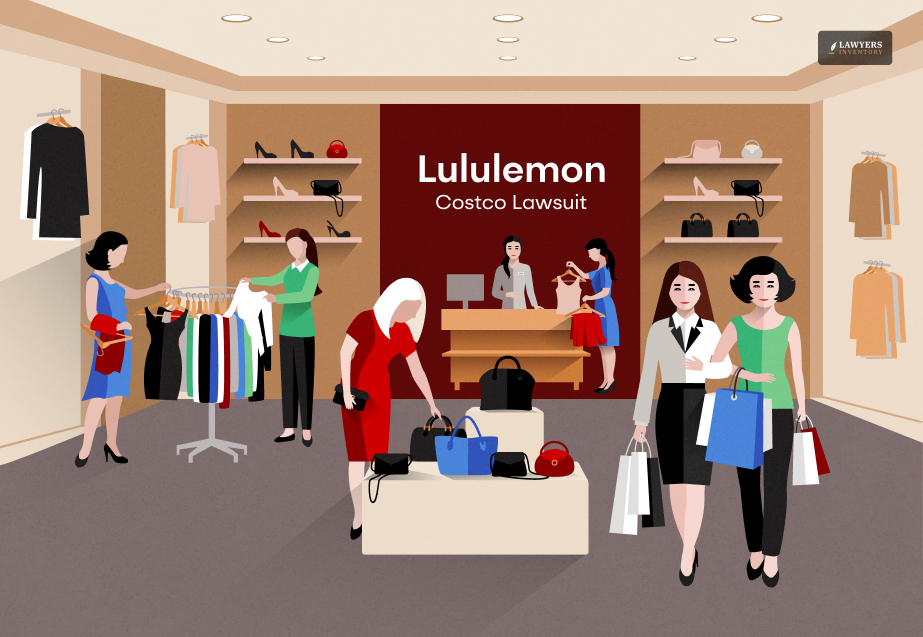
Your favorite athletic wear brand is standing up to discount culture. The apparel giant Lululemon is aggressively pursuing a major Lululemon Costco Lawsuit. Costco is said to be selling illegal copies of the very popular patterns on Lululemon’s apparel.
This risky courtroom showdown matches up an upscale athletic wear company with a retail warehouse behemoth.
The real issue of the Lululemon Costco Lawsuit is intellectual property theft. Lululemon specifically targets Costco’s private-label Kirkland Signature brand.
They assert that Kirkland’s products illegally replicate the unique “look and feel” of Lululemon’s patented designs. The case demonstrates the issue of brand protection vs. what is quickly becoming the hot new consumer trend known as “dupe culture.”
According to Reuters, the Lululemon Costco Lawsuit ruling will set a gigantic precedent for designers and retailers worldwide.
Lululemon Costco Lawsuit Background: Lululemon, Kirkland & Dupe Culture
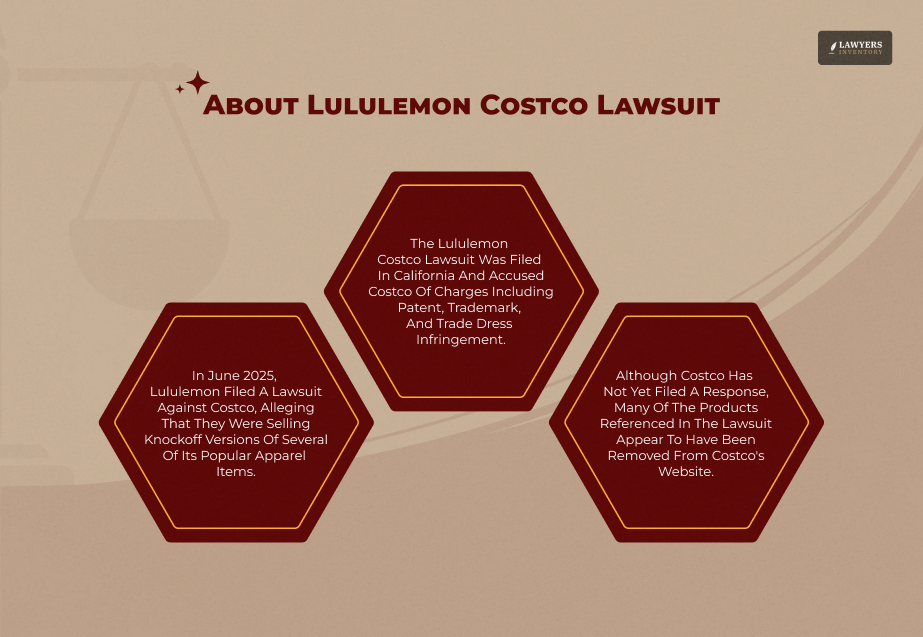
Lululemon built its brand on exclusivity, quality, and distinctive design elements. Consumers willingly pay a premium for their signature stitching and uncompromising fit.
Conversely, Costco’s Kirkland Signature brand thrives on delivering high-quality products at dramatically reduced prices. Costco achieves this by employing highly sophisticated private-label strategies.
The battle escalated because of “dupe culture.” Social media platforms such as TikTok actually promote individuals to search for dupes of high-end brands that are more affordable. There, the more inexpensive variations are called “dupes.”
The Lululemon Costco Lawsuit shows us how quickly a social trend can become a legal fight. The dispute is whether the Kirkland product merely leans toward being a simple substitute or ventures into unlawful trademark infringement.
What Is A "Dupe"?
A "dupe" is a product that both looks and performs like a more expensive product. Costco Lululemon dupe products mimic design elements like seam placement or the texture of fabric.
This is not a counterfeit. A counterfeit purports to be the real brand; it contains fake tags and logos. A dupe is sold under its own brand (Kirkland Signature). The Lululemon Costco Lawsuit asserts that the copying is so similar that it illegally copies covered-up characteristics.
Kirkland’s Function & Production Models
Costco produces the Kirkland Signature items, usually not directly. Rather, the company farms the work to third-party manufacturing plants. This makes the Lululemon Costco lawsuit a little more complex.
Lululemon can also sue the manufacturers. However, ultimately, Costco is the guilty party for selling the allegedly infringing goods. Moreover, where the source of the design intent actually lies in such circumstances, it becomes the principal impediment to discovery.
Lululemon brought suit on a comprehensive complaint. It is founded on a number of theories of law to prove that Costco unlawfully benefited from its designs. Intellectual property law forms the basis of the claims in the Lululemon Costco lawsuit.
Lululemon Sues Costco Trademark / Trade Dress / Likelihood Of Confusion
The best argument Lululemon has is Trade Dress infringement. Trade dress includes the overall non-functional look, look, and feel of an item. This includes the unique way in which Lululemon uses seams, waistbands, and gussets.
Lululemon claims these features have become “secondary meaning.” This means consumers everywhere associate those features with the brand Lululemon. It is a central element of the Lululemon Costco Lawsuit.
According to The Washington Post, the key legal test is consumer confusion. Lululemon must establish that a reasonable consumer would see the Kirkland Signature product and believe Lululemon or an official, cheaper line made it.
Courts apply a multi-factor test to find the likelihood of such existence. The factors include similarity in appearance, intent of the defendant, and evidence of actual confusion. Lululemon must convince the court that the consumers are actually confused at the time of purchase or shortly thereafter.
The Costco vs Lululemon Lawsuit has a lot riding on proving that their signature stitching is recognizably unique at first glance. That’s a pretty high mountain to climb.
Design Patents & Utility / Functionality Issues
Lululemon generally acquires Design Patents on specific, ornamental details of its clothing. A design patent protects only the visual look, not the function. Lululemon claims that the Costco items copy these already patented designs.
Costco, in its defense, will argue that the borrowed features are solely functional design. For example, a specific seam placement may be needed for strength or fit as opposed to ornamentation.
For design patent infringement in the Lawsuit of Lululemon Costco, the test is the “ordinary observer” test. A judge or jury will decide if an ordinary observer, giving proper attention, would find the two designs to be substantially the same.
If the difference is subtle enough to mislead an ordinary purchaser, infringement is likely. If the court finds that the features are functional, the design patent claim in the case of Lululemon Costco can fail.
Other Claims: Unfair Competition, False Designation
Lululemon makes claims under the Lanham Act as well. This is the federal statute governing trademarks and competition. They are Unfair Competition and False Designation of Origin.
These claims typically allege Costco’s behavior hurts Lululemon’s goodwill and sales by confusing consumers in the marketplace. Lululemon asserts that the unfair benefit obtained by Costco must be corrected.
Lululemon Dupes Lawsuit: Recommended Evidence & How Lululemon Supports The Claims
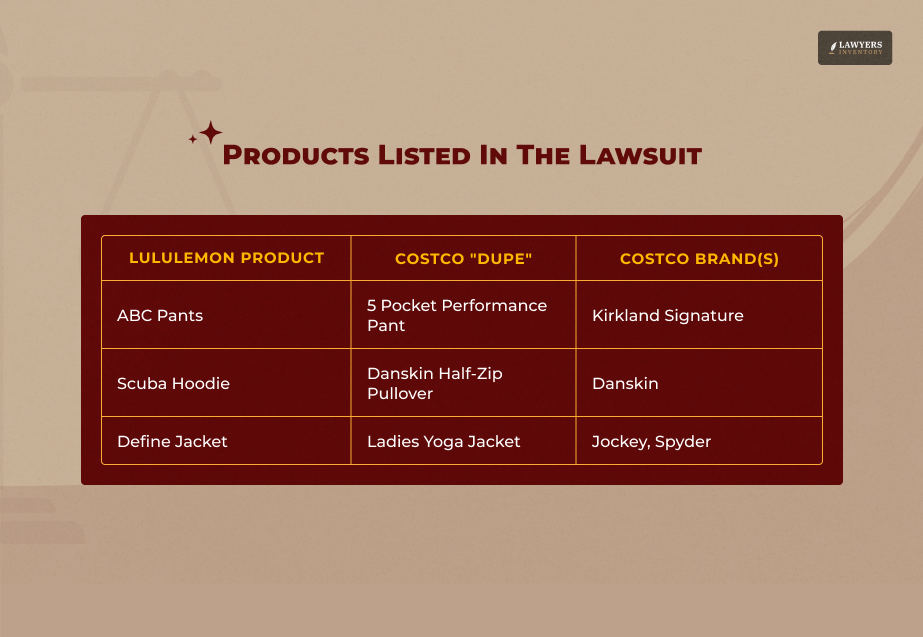
To win in the Lululemon Costco Lawsuit, Lululemon must provide undeniable evidence that Costco’s designs are not just similar, but also infringing. Such evidence is necessary for a win or forcing a settlement.
Lululemon will introduce some very important evidence:
- Side-by-Side Comparisons: Created in-depth side-by-side comparisons of the original Lululemon item with the so-called Costco Lululemon copycat. Those comparisons reveal identical decorative elements.
- Surveys of Consumers: Statistical proof that a vast majority of consumers are, in fact, confused regarding where the Kirkland product originates. The surveys must be completed within strict legal standards.
- Social Media Evidence: Copies of TikTok videos or Instagram posts wherein users actively endorse the Kirkland product as the “Lululemon dupe,” thus linking the two brands inextricably. This proves real-world confusion in the marketplace and brand identity.
Costco’s Likely Defenses & Weaknesses In The Suit
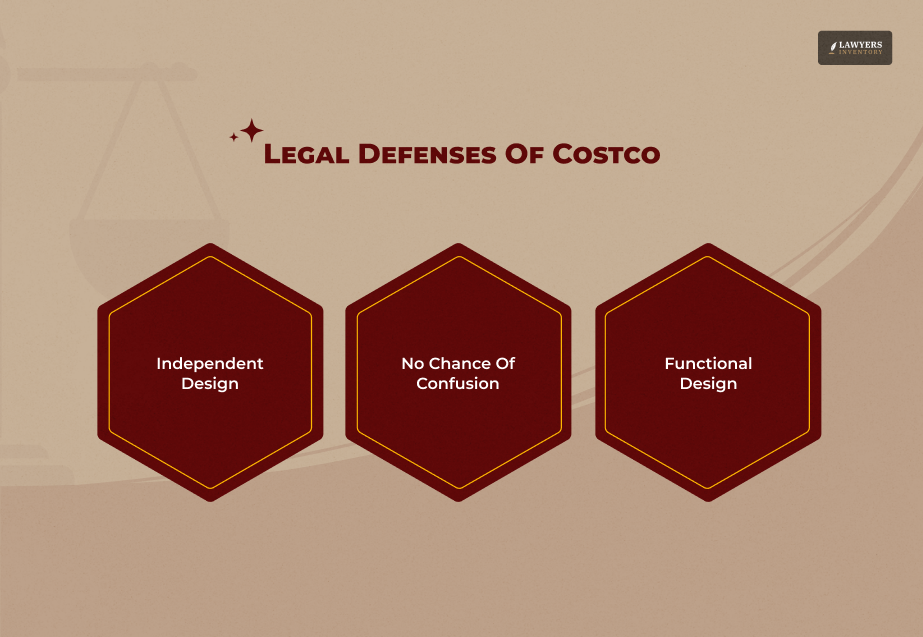
Costco is a giant company with deep legal resources. They will likely utilize some counterarguments against the Lululemon Costco Lawsuit.
1. Independent Design
Costco will argue that its products came about through independent design. They will assert the Kirkland products were designed without referring to Lululemon’s protected design features, normally by citing design documents and timelines.
2. No Chance Of Confusion
They will argue that the price difference, the Kirkland label, and the distinct store atmosphere (a warehouse club vs. a boutique) remove any chance of confusion on the part of normal consumers.
3. Functional Design
Costco will argue that the alleged “protected” features are merely functional for sports performance. They will show that they are functional design features within reach of all manufacturers, like four-way stretch fabrics or flatlock stitching.
4. Prior Art
They are able to generate proof of prior art. It means that there were already similar designs available and were sold by other firms before Lululemon patented or claimed the features. This proof can totally negate Lululemon’s claim. The evidence needed for this defense is solely in the possession of Costco.
The history of fashion and intellectual property law gives relevant context for the Lululemon Costco Lawsuit. It’s not unusual for brands to sue discount retailers on the same grounds.
Take the 2018 case of Deckers Outdoor Corp. v. Costco Wholesale Corp. Deckers, the owner of UGG, successfully sued Costco over shoe knockoffs. That established the precedent that retailers are liable for selling infringing products even if they’re private labels.
But the UGG case centered on brand trademarks over unique, complex design patents, pointing to the challenge of the Lululemon Costco Lawsuit today.
On the other hand, most trade dress claims are unsuccessful because a court determines the design aspects are functional or do not have secondary meaning, something that risks Lululemon.
Strategic & Business Implications
The Lululemon Costco Lawsuit is more than just about one particular product. Its resolution has significant Strategic & Business Implications.
1. For Brands
A victory for Lululemon would embolden high-end brands to come after their designs aggressively from “fast dupe” culture. It would legitimize spending a lot on design patents. This would probably lead more brands to follow suit in taking similar action against retailers.
2. For Retailers
A loss at Costco would raise the financial stakes for all large-box retailers who construct Kirkland private label or other store brands. Retailers would need to step up their design differentiation and legal due diligence to reduce liability. Thus, this will impact sourcing costs.
3. For Consumers
The consumer Lululemon Costco Lawsuit embodies the risk of dupes. While cheaper, Costco Lululemon dupes may not include the quality guarantee or ethical sourcing of the real brand.
The verdicts in the lawsuits will force price changes across the activewear industry. This decision will have a direct impact on how active wear is bought by most people.
Read Also: Four Lakes Task Force Assessments Lawsuit- Legal Significance And Property Owner Impacts
Procedural Considerations & Timeline
The process of law for the Lululemon Costco Lawsuit is lengthy and complex. Once the initial complaint has been filed, the parties enter into the discovery process. They perform millions of document exchanges and take depositions. Lululemon may initially request a preliminary injunction hearing.
This is a request to have the judge temporarily enjoin Costco from selling the infringing imitations pending the case. Courts are not willing to issue injunctions, however, unless the injury of infringement is overwhelmingly clear and imminent.
The last trial could be years away.
What To Watch & Possible Outcomes
An undisclosed settlement is the most probable outcome for the Lululemon Costco Lawsuit. This keeps both firms out of the public humiliation and hefty cost associated with a full trial.
1. Settlement
Costco would give Lululemon an unspecified amount. They would commit to pulling the particular items from store shelves and destroying the inventory on hand. This is the most frequent outcome for this kind of intellectual property case.
2. Preliminary Injunction
If it were granted, this would be a significant early win for Lululemon, putting pressure on Costco to settle soon.
3. Trial
If the Lululemon Costco Lawsuit actually goes to trial, it will potentially create a binding precedent. This will affirm greater trade dress protection for athletic wear or erode it. Therefore, the outcome is rare but very powerful.
Expert Tips, Best Practices & Lessons For Brands / Retailers
The Lululemon Costco Lawsuit leaves no doubt as to what lessons are available for all participants in the apparel industry.
1. For Brands
Patent both design and utility patents early. They must have an active knockoff monitoring program. They must also conduct surveys to determine whether their distinctive features have achieved secondary meaning.
2. For Retailers
Retailers must improve legal oversight in product development. They must utilize express disclaimers. They must make sure that their designs accrue sufficient design differentiation to avoid claims that their Costco Lululemon Knockoffs are infringing.
3. For Consumers
Always read the washing instructions and labels. Dupes tend to take shortcuts here. Be aware of slight variations in logo positioning and design to ensure authenticity.
Read Also: Trajector Medical Lawsuit: Grievances, Legal Problems, And Veteran Testimonies
Frequently Asked Questions [FAQs]:
The Lululemon Costco lawsuit is a high-profile fight for reputation and design, demonstrating that IP protection is more important than ever in competitive retailing. The ultimate decision will decide the limits between legal imitation and illegal infringement in fast fashion and “dupe” culture.
Ans. A design patent only covers the ornamental appearance, the non-functional aesthetic aspects. If Lululemon’s design is determined to be necessary for the functionality of the garment (e.g., compression or freedom of movement), the claim would fail.
Ans. The Trade Dress claim would be the most risky. Unlike a specific patent, trade dress protects the overall look and character of the product in the marketplace. Thus, it is an extremely potent tool for big brands that have a recognizable visual image.
Ans. Price difference is one thing a court would consider, but it is not determinative. If the two products are too similar in design, courts will still find infringement because consumers may be confused about the source (think that Costco’s product is a cheaper licensed or secondary line from Lululemon).






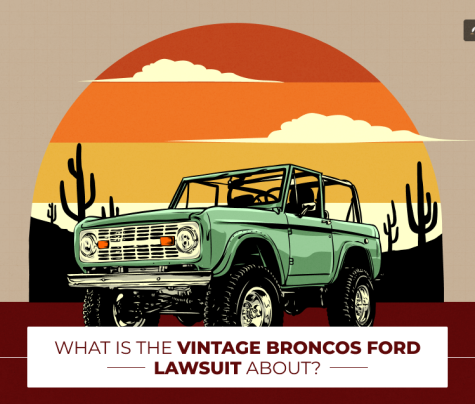





0 Reply
No comments yet.